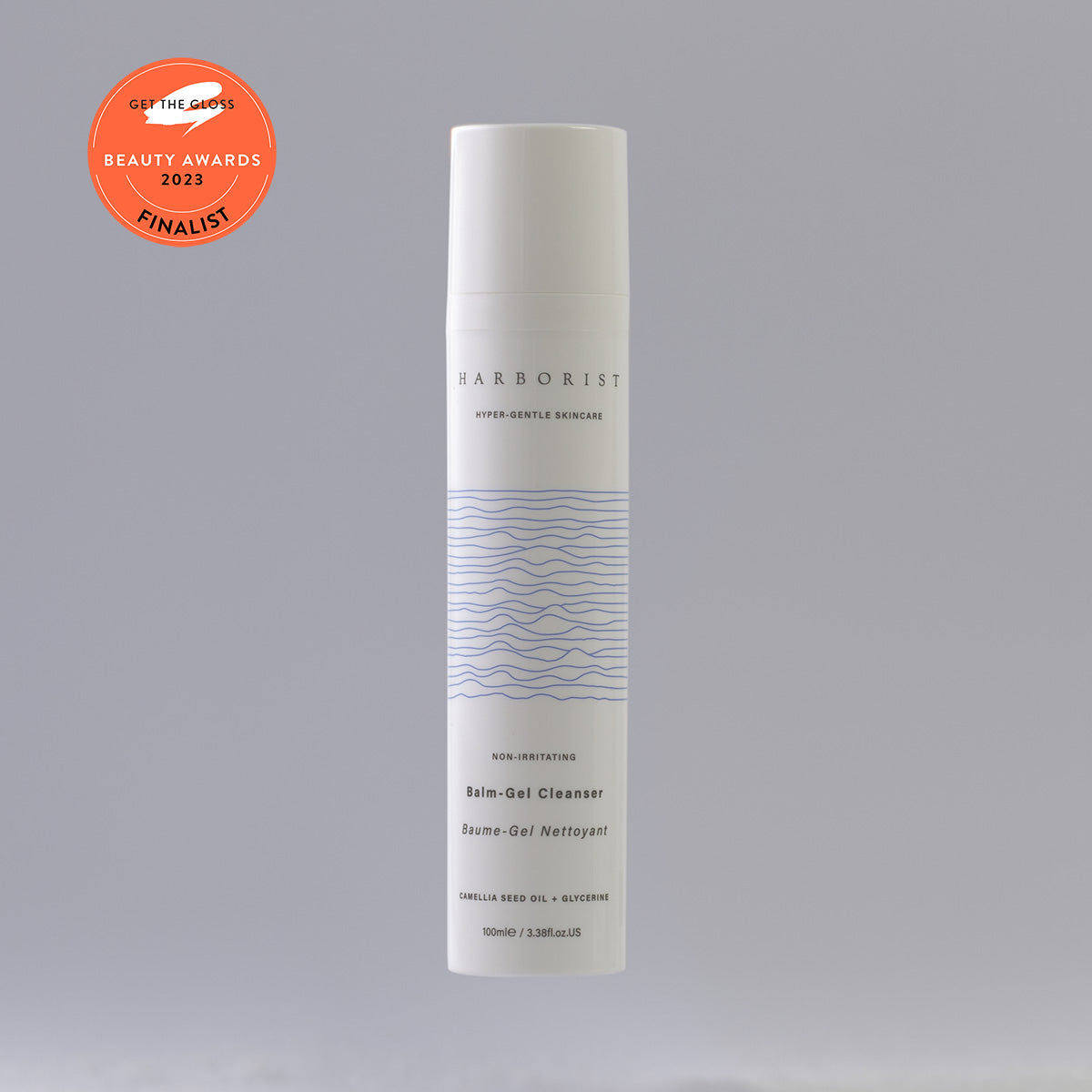Harborist was created to improve the experience of people with sensitive skin. Part of that poor experience is the difficulty in identifying which products are gentle enough.
Claims like 'dermatologically tested' and 'for sensitive skin' are badly defined. And if the claim falls short of expectations, it's customer who pays the price, whether that's with unhappy skin or another barely used bottle at the back of the draw.
This isn't a minor issue - in a 2014 study of 12,377 individuals in Europe, 19% reported skin reactions lasting more than three days in the previous month, and 37% avoid daily cosmetic products due to previous reactions.¹
What is a sensitive skin product?
When we launched in 2017, it was common to find claims that a product with 'all-natural' ingredients was automatically better for sensitive skin. Yet this isn't true - the complexity of natural materials can make formulating a gentle product more challenging, not less.
And although this misconception has died down, others have come to replace it. Now mildness is interchangeable with fragrance-free or with soothing actives. Yet it's possible to make an irritating product by this standard too.
Reactions to skincare products are multi-factorial - it could be a stinging sensation, the result of a product increasing water escape from the skin or even preventing it, a formula which disturbs the lipids in the protective barrier, or one that allows particular molecules to get where they shouldn't.
If we think of the ranges widely trusted to provide sensitive skincare, like Avené Tolerance, it isn't down to the claims that they're advised for the most reactive skin. It's because they guarantee a level of expertise. The whole formulation together is what's important; working with scientists and labs who understand this is crucial.
But outside of those trusted legacy ranges it becomes difficult to know when to trust a mildness claim. Yet communication works best when it's simple, so 'without synthetic ingredients' or 'fragrance free' is used to communicate the how, because it’s tangible.
Instead of decoding claims and ingredient lists, wouldn't it be better if we could instantly see where a product sits on a scale of mildness instead?
How a recent innovation in mildness testing helps
The XtraMild test was developed by a vegan testing lab, XCellR8, as part of a research project funded by Innovate UK.
It uses synthetic human skin in place of human volunteers and is particularly good at detecting differences between mild and non-irritant - an important distinction for those with sensitive skin. The method was validated against human patch testing, the gold standard in irritancy testing.
Once a product or ingredient is tested, it receives one of five categorisations, from corrosive to non-irritant. Though so far these results have been used for brands to internally assess their products, I wanted to give that information to the person who needs it most – the one buying it. No more vague claims.
But the test also does something else: It benchmarks the product against others in the same category.
Benchmarking, and why we sometimes don't trust it
It's common for products to be benchmarked against a competitors. But this can leave doubts about bias – was the worst benchmark product chosen to give a favourable comparison? Were other products also tested yet omitted because they performed too well?
In contrast, every product tested using the XtraMild test becomes part of a database. The results are anonymised and placed into categories such as facial wash or shampoo. The tested product can then be compared against other products in that category. The comparison is free from influence from the commissioning brand.
The results
This update had been planned for two years, but a couple of things stopped us from going ahead straight away. First, we had to wait until a small formulation change was complete, or our results wouldn't be valid in the future. And as a self-funded brand, our resources were going on R&D for new product launches during that time. Once all of that was out of the way, we ran the test.
The results were fantastic and showed our cleanser to be non-irritating – the gentlest of five categories.
It also maxed out the score, meaning no other product scored higher.
What we learned about other cleansers
Around 54% of all other facial cleansers in the database involved some level of irritation. Most of those were in the third category – mild to moderately irritating.

As the data is anonymous, we don't know what these products are or what claims they make. We also don't know how the tested products reflect what you might find on the shelf. But the data shows that all products are not equal – there is a range of mildness.
It's worth mentioning, too, that XCellR8's two-year research included tests on a range of facial cleansers and bars found one popular product claiming to be milder than competitors actually wasn't.
We'll be tweaking the moisturiser formulas over the next year to try out some new ingredients – once they're finalised, we plan to run the test on those too.
I hope that in reassuring you about our products, we also spark a debate on what it means to be suitable for sensitive skin and how to make the right choices for you. If you'd like to try our cleanser for yourself, you can find it here.
¹ Naldi et al (2014). Prevalence of self-reported skin complaints and avoidance of common daily life consumer products in selected European regions. JAMA Dermatol 150(2): 154-162



